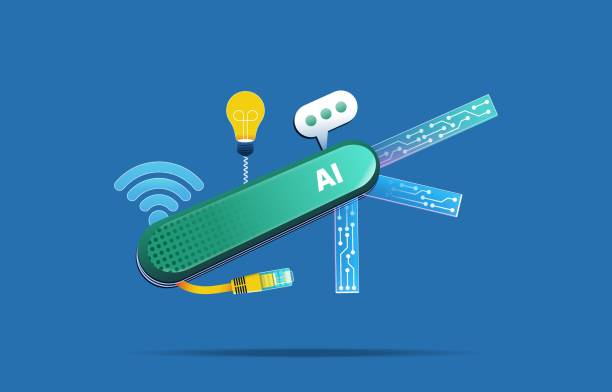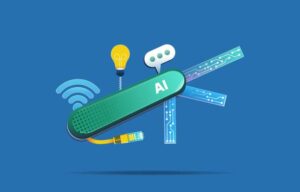Artificial Intelligence has transformed industries and daily life, yet it brings profound ethical concerns. These challenges require careful examination to ensure AI benefits society without harm. The rapid development often outpaces regulation.
The ethical dilemmas in AI touch on privacy, bias, accountability, and societal impact. Developers, policymakers, and users must collaborate to create frameworks that guide responsible AI use. Ignoring these challenges risks significant negative consequences.
Understanding AI ethics helps us navigate moral complexities while fostering trust. Ethical AI design promotes fairness and transparency. This foundation is essential as AI integrates deeper into our lives, influencing decisions and behavior worldwide.
Bias and Fairness in AI Systems
AI algorithms often learn from historical data, which may contain biases. These biases can lead to unfair treatment of certain groups, perpetuating discrimination in hiring, lending, or law enforcement decisions. Addressing bias is critical.
Developers must carefully curate training data to avoid embedding prejudices. Techniques like fairness-aware machine learning aim to reduce disparities. However, complete elimination of bias remains a challenging goal due to societal inequalities reflected in data.
Fairness in AI demands transparency about how systems make decisions. Open communication allows users to understand potential limitations and errors. Ethical AI prioritizes equal treatment and inclusion, fostering trust and mitigating harm in affected communities.
Privacy Concerns and Data Protection
AI systems rely heavily on vast amounts of personal data. This dependence raises significant privacy concerns as sensitive information can be misused or exposed through breaches. Protecting data is a fundamental ethical obligation.
Users often lack control or awareness of how their data is collected and processed. Clear policies and consent mechanisms are necessary to empower individuals. Data anonymization and encryption help reduce privacy risks in AI applications.
Balancing AI’s benefits with privacy rights requires careful regulation. Ethical AI respects individual autonomy and confidentiality. Organizations must implement robust security practices to safeguard personal information from unauthorized access or exploitation.
Accountability and Transparency in AI
AI decision-making can be complex and opaque, making accountability difficult. When AI causes harm, identifying responsibility becomes challenging. Transparency is crucial to ensure accountability for AI’s actions and outcomes.
Developers should document AI systems thoroughly, explaining how decisions are reached. Transparent AI fosters trust and enables scrutiny, allowing stakeholders to hold parties accountable for mistakes or unethical behavior.
Ethical AI demands clear accountability frameworks, specifying who is responsible for design, deployment, and monitoring. Without this clarity, misuse and negligence risks increase, undermining public confidence and ethical standards.
Impact on Employment and Workforce
AI automation affects many jobs, raising ethical concerns about workforce displacement. While AI can boost efficiency, it may also create unemployment or exacerbate inequalities if benefits are unevenly distributed.
Organizations must consider reskilling and support for workers affected by AI-driven changes. Ethical AI strategies include preparing employees for evolving roles and mitigating negative economic impacts.
Balancing innovation with social responsibility ensures AI contributes to inclusive growth. Transparent communication about AI’s impact on jobs helps manage expectations and fosters collaboration between employers, employees, and policymakers.
AI in Decision-Making and Human Autonomy
AI increasingly supports or replaces human decisions in areas like healthcare, finance, and criminal justice. Ethical concerns arise when AI undermines human autonomy or overrides personal judgment.
Designers must ensure AI assists rather than controls decisions, preserving individuals’ ability to choose. Human oversight is essential to maintain ethical standards and prevent harmful consequences.
Respecting autonomy means AI should provide explanations and alternatives, enabling informed decisions. Ethical AI empowers users, avoiding manipulation or undue influence in critical situations.
Security Risks and Malicious Use of AI
AI technologies can be exploited for harmful purposes, including cyberattacks, misinformation, and surveillance. Ethical challenges include preventing malicious AI use that threatens security and privacy globally.
Developers should integrate safeguards to minimize risks, such as detecting adversarial attacks or misuse. Collaboration among governments, industry, and researchers is essential to combat malicious AI.
Addressing these threats requires ethical vigilance and proactive policies. Responsible AI deployment includes anticipating risks and ensuring resilience against exploitation or unintended consequences.
Ethical AI Governance and Regulation
Effective governance structures guide ethical AI development and deployment. Policymakers must create laws and standards that promote accountability, fairness, and transparency in AI systems.
Regulation should be flexible to accommodate rapid technological advances while protecting public interests. Multi-stakeholder involvement ensures diverse perspectives shape AI governance frameworks.
International cooperation enhances regulation effectiveness, addressing cross-border AI challenges. Ethical AI governance balances innovation incentives with societal safeguards to build a sustainable digital future.
The Role of AI Ethics in Society
AI ethics fosters responsible innovation, ensuring technology aligns with human values and rights. Ethical reflection helps anticipate consequences and shape AI that serves society’s best interests.
Education and awareness about AI ethics empower individuals to engage critically with AI technologies. Public participation strengthens democratic oversight and accountability in AI development.
Embedding ethics in AI research and business promotes trustworthiness and social acceptance. It challenges developers to prioritize moral considerations beyond technical achievements.
Challenges in Defining Universal AI Ethics
AI ethics varies across cultures and legal systems, complicating universal principles. Diverse values and priorities mean ethical standards must be adaptable yet consistent in core human rights.
Developing shared ethical guidelines requires dialogue and mutual respect among global stakeholders. This cooperation enhances AI’s beneficial impact while minimizing ethical conflicts.
Acknowledging complexity encourages inclusive AI design that respects different perspectives. Ethical pluralism in AI governance helps address diverse societal needs responsibly.
Future Directions for Ethical AI
Advancing ethical AI involves continuous research into fairness, transparency, and accountability. Emerging technologies like explainable AI and privacy-enhancing methods show promise for ethical improvements.
Stakeholders must invest in interdisciplinary collaboration, combining technical expertise with social sciences and humanities. This holistic approach strengthens ethical AI frameworks.
Ongoing evaluation and adaptation of ethical guidelines ensure responsiveness to new challenges. Future AI systems should prioritize human well-being, justice, and environmental sustainability.
Conclusion: Embracing Ethical Responsibility
The ethical challenges of AI demand proactive engagement from all sectors. Embracing responsibility ensures AI develops in ways that respect human dignity and promote social good.
Transparency, fairness, privacy, and accountability form the pillars of ethical AI. These principles guide developers and users toward trustworthy and equitable AI adoption.
Ultimately, ethical AI fosters innovation that enhances lives without compromising fundamental rights. Collective commitment to ethics is vital for a just and inclusive technological future.











